detail profile gustavo rosa de moura
Peran Yang Di Mainkan Gustavo Rosa de Moura
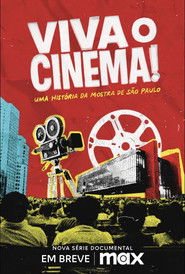 The series tells the story of...
The series tells the story of...Viva o Cinema! Uma História da Mostra de São Paulo 2024
The series tells the story of the São Paulo International Film Festival, one of the most traditional cultural events in Latin America. For 48 years, the festival has showcased hundreds of films from all over the world, bringing vibrancy to the city. Filmmaker Marina Person provides an irreverent perspective, highlighting the exciting and unusual stories that have marked the festival’s journey of resistance. The series reveals the individuals who have embraced the challenge of organizing this significant cultural event in Brazil every year, despite often challenging conditions. We also delves into how the Mostra has grown to become one of the main festivals globally, shedding light on the changes in cinema, Brazil, and the world over the years.
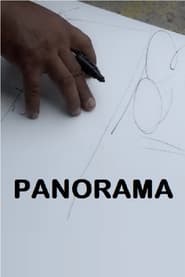 Between the scars of the past...
Between the scars of the past...Panorama 2022
Between the scars of the past and the uncertainties of the future, Jardim Panorama resists. A little over ten years ago, the favela was ripped in half by a monster. Today, the monster sleeps. Until when? A film about the dreams, memories and daily life of those who live in a community surrounded by the walls of an upscale neighborhood in São Paulo.
 20 years ago Bia fell into a...
20 years ago Bia fell into a...She and I 2021
20 years ago, Bia fell into a coma when her daughter was born, but that hasn't stopped her from being part of the family's daily life for all that time, even if she's unconscious. One day, extraordinarily, Bia wakes up and causes a radical change in the lives of everyone around her. While she needs to relearn how to talk, walk and relate, her adult daughter, her ex-husband and his current wife will have to readjust to a new family configuration, much more complex and full of challenges.
 2064 Cora a Danish woman finds an...
2064 Cora a Danish woman finds an...Cora 2021
2064. Cora, a Danish woman, finds an unfinished documentary in which Benjamim, her Brazilian father, attempted - fifty years earlier - to investigate the story of his own parents: Teo, who, afflicted by insanity, died when he was still a child, and Elenir, a mysterious woman he’d barely heard of. In the course of his investigation, Benjamim discovers that both characters are part of a complex family puzzle, filled with traumas and taboos, and starts seeing himself as an important piece in the puzzle. The footage found in Benjamim’s documentary is reorganized by his daughter, Cora, in an attempt to understand her family’s lost past.
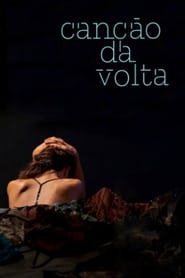 One day Eduardo arrives at his...
One day Eduardo arrives at his...Ballad of Return 2016
One day, Eduardo arrives at his house and discovers that Julia, his wife, tried to commit suicide. She left her husband and two children without saying goodbye. After some time, she comes back home. He tries everything to set her straight, but the impossibility of knowing her fully grieves him. The shadow of the suicide and the inevitable ghost of a new chance hover over their heads. Eduardo insists on understanding his wife, but an increasing jealousy and an unexpected discovery of her past torture him. He does not realize that, most of the time, the search for control easily becomes an obsession.
 The year is 1984 Estela is going...
The year is 1984 Estela is going...Califórnia 2015
The year is 1984. Estela is going through the turbulent phase of adolescence. Sex, lovers, friendships; everything seems very complicated. Her uncle Carlos is her hero, and visiting him in California is her biggest dream. But everything collapses when he returns thin, weak and ill. Between crises and discoveries, Estela will face a reality that will forever change her way of seeing the world.
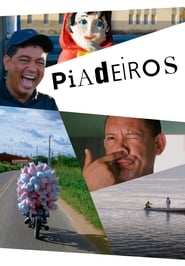 A film crew travels to inner...
A film crew travels to inner...Piadeiros 2015
A film crew travels to inner Brazil in search of the best “piadeiro” —amateur comedian— of the region. We meet these characters on the streets, squares and inside bars, while they are displaying their sense of humor. Beyond being interesting characters, they have the knack of making people laugh. In this film, they each have their 15 minutes of fame —or maybe more.
 A single and apparently humdrum scene...
A single and apparently humdrum scene...I Think It Was Raining 2012
A single and apparently humdrum scene in which various days all blend into one. A couple is having breakfast in the kitchen. He is older, greyer, more anguished than she, who is light, pretty and giddy. A morning like any other, were it not for the secret fact that it would be their last together.
 In the city of Capela Brazil...
In the city of Capela Brazil...Capela 2012
In the city of Capela, Brazil, a strange feast happens every year. Mud, tree, and fire mixing up together in a ritual of extreme visual and poetic impact.
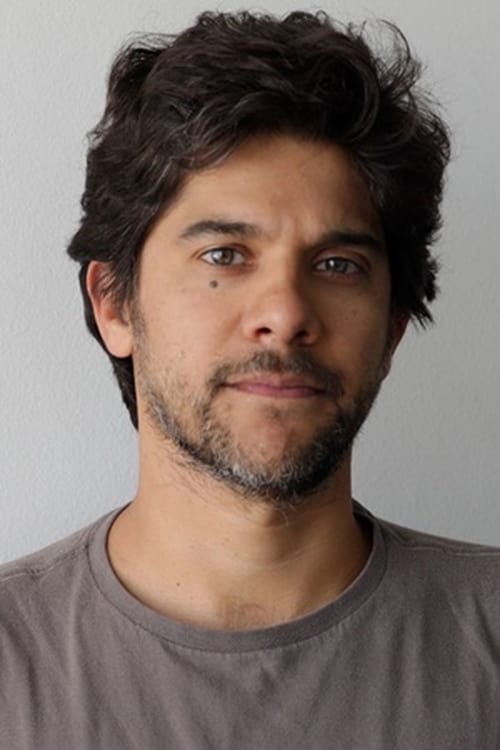
 A teenage girl decides to replace...
A teenage girl decides to replace...
 The city and its parking lots
The city and its parking lots Inside a Brazilian slaughterhouse two skilled...
Inside a Brazilian slaughterhouse two skilled...